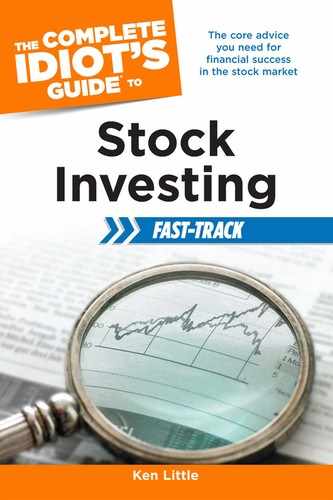We all have financial goals, whether it’s a retirement nest-egg, college for the kids, a down-payment for a new house, or all of the above. You may have other financial goals beyond these. I hope you have written these goals down in specific terms with dollar amounts and dates for completion. Specific goals with specific dates (I want $50,000 in the college fund by the time my daughter reaches 18) will help you focus on achieving your plan. More importantly, having specific goals and dates will help you decide how stocks are going to help you achieve the goals.
Retirement planning is the most important financial goal, because it involves the most money and needs the most time to achieve. If you are 25 years old, retirement is probably the last thing on your mind. However, if you are 50 years old, a healthy retirement nest-egg becomes a much more urgent concern. The irony is you would not worry about having a robust retirement fund at age 50 if you had started at age 25.
Regardless of your age, major financial goals are what shape the decisions you make about investing in the stock market. While a complete financial plan includes more than stocks, if you don’t get that part right, the other financial products you use will not likely make up the difference.
The two key parts of your investment plan are goals and anticipated completion dates. Investing in stocks for these goals is driven by both elements, however timing is the most important element. Stocks are your best chance for investing success over the long term. As I noted in Chapter 1, there are several ways to invest in stocks. I believe the case for using individual stocks as your primary investment tool (as opposed to mutual funds and exchange traded funds), is solid with all the caveats noted in this book.
The use of individual stocks for long-term investing is well-founded, however short-term trading strategies (gambling, really) are not, as you will see in the sections that follow. The record is clear that most people who try to time the market through short-term trading fail. What you want is a long-term strategy that gives you the best opportunity to achieve your financial goals.
| MARKET RISK |
Investing in stocks is not always the best answer for a financial goal. There are times when you should use other products besides stocks. Investing in stocks to meet short-term goals is usually not a good idea. I recommend you do not use stocks for any goal that is fewer than five years from completion. Any financial goal you need to achieve in fewer than five years is exposed to a risk that the stock market will swing to the downside just when you need the money.
For example, if you have $30,000 saved for a down-payment on a house and you anticipate buying within the next five years, move that money out of the stock market and into an investment that will secure your principal for the next five years. You can use a bank CD, a U.S. Treasury bond, or some other safe investment so when it comes time for the down-payment you know the $30,000 will still be there. Stocks cannot provide that security. This example assumes you have made allowances for current and anticipated inflation, taxes, and other expenses. The point is that even the best plans can be sabotaged by a volatile stock market over the short term.
As you approach retirement, you will want to dial back your exposure to stocks and move into safer alternatives. I’ll talk more about this in Chapter 9.
